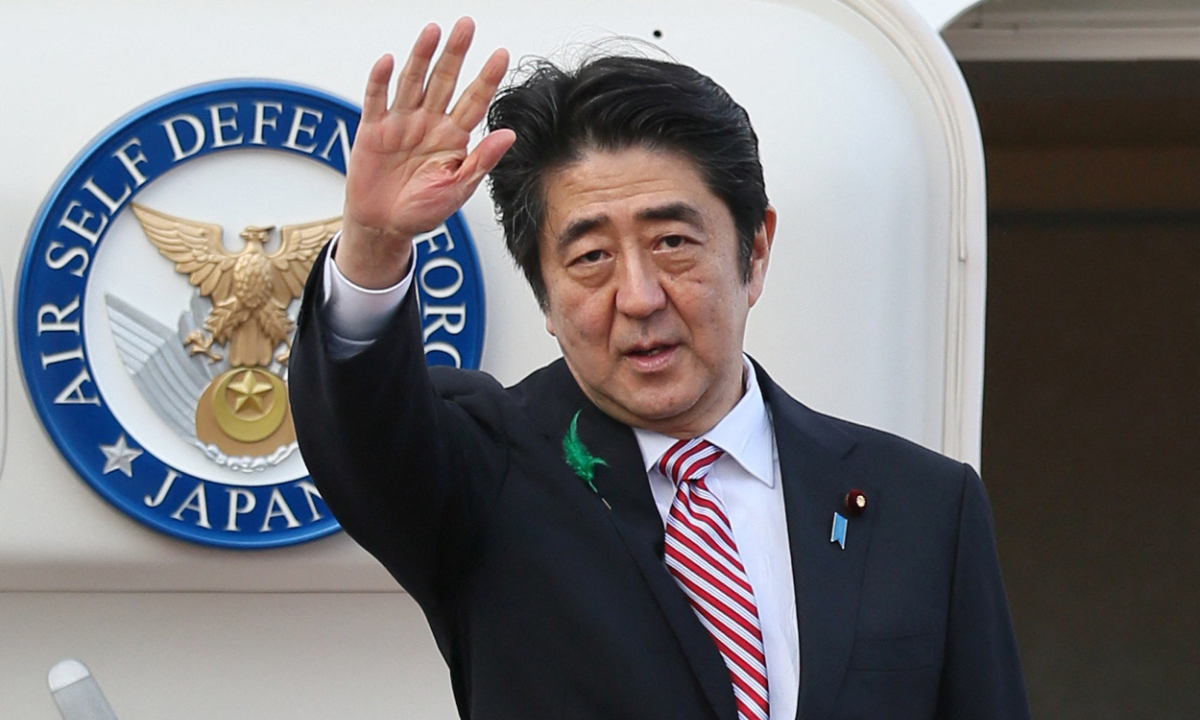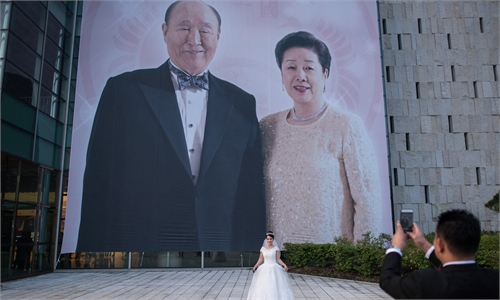IN-DEPTH / IN-DEPTH
Abe’s assassination ‘sounds alarm on bigger political crisis’ of emboldened conservative forces’

In this file photo taken on April 21, 2015 Japanese Prime Minister Shinzo Abe waves as he headed for Indonesia at the Tokyo International Airport. Photo:AFP
The assassination of the former Japanese Prime Minister has seemingly caused a "copy cat" effect in surrounding countries and regions including South Korea and the island of Taiwan on the potential threat of the assassination of senior politicians.
Despite Abe's death being a particularly unique case and is unlikely to trigger a dreadful "assassination trend," experts said that the assassination has sounded the alarm on a bigger political crisis linked to emboldened conservative forces.
According to Yonhap News Agency, a South Korean netizen posted a threat to shoot the country's President Yoon Suk-yeol online on Saturday early morning (local time). The netizen was arrested by police for attempted coercion, said the media report.
The netizen, in his 40s, had reportedly uploaded three articles onto a website threatening he was going to assassinate Yoon. The articles read "[I will] go to Yongsan [where the presidential office is located]" and "there are six bullets left."
The netizen deleted the articles 10 minutes after uploading them, and he voluntarily turned himself in to police on Sunday afternoon, claiming he was just joking, according to South Korean media.
A similar case happened in the island of Taiwan where a local netizen posted "If it were me, I would also want to shoot and kill Tsai Ing-wen," on Friday when Abe was shot dead in Japan. The netizen allegedly wrote the comment on Professional Technology Temple (PTT), the island's largest online bulletin board system, according to the Taipei Times.
The netizen was later identified as a 22-year-old university graduate surnamed Chen, and police arrested him at his home later on the same day.
A preliminary investigation found that Chen graduated from university this year and is looking for work, police said, adding that he has allegedly expressed displeasure in Taiwan's political situation, the Taipei Times reported.
Abe, 67, Japan's longest-serving modern prime minister, was fatally shot on Friday while making a speech in support of a local candidate in the Western Japanese city of Nara, by Tetsuya Yamagami. The suspect told police that his mother had made a large donation to a religious group and that his family was ruined as a result, according to Japanese media reports.
The suspect confessed to the police that he "did not resent Abe's political beliefs," but that his resentment toward the Family Federation for World Peace and Unification, known as the Unification Church, a religious movement founded in South Korea, turned into a desire to kill the former national leader, according to Japanese media reports.
The police investigation into the assassination prompted the head of the Japanese branch of the Unification Church to confirm on July 11 that Yamagami's mother is a member.
Abe's assassination while being an isolated incident could probably trigger some who are dissatisfied with the society and politicians to follow suit, some observers warned, urging relevant departments to tighten security measures for important public figures.
Abe's killing has sounded an alarm on religious extremism, terrorism, and other social hot button issues, a senior Beijing-based expert on international relations told the Global Times, on condition of anonymity.
Abe's assassination, along with threats made by netizens to kill other senior politicians, exposed rising politically conservative forces among developed countries and regions, which could cause widespread public security concern, and create social unrest, the anonymous expert said.
Political conservative forces prevalent in countries like Japan and the US tend to be extreme, and their actions and consequences are also becoming extreme, some observers warned.
US society also shows a tendency toward promoting white supremacy and religious extremism which prevailed in the 18 century, they said.


